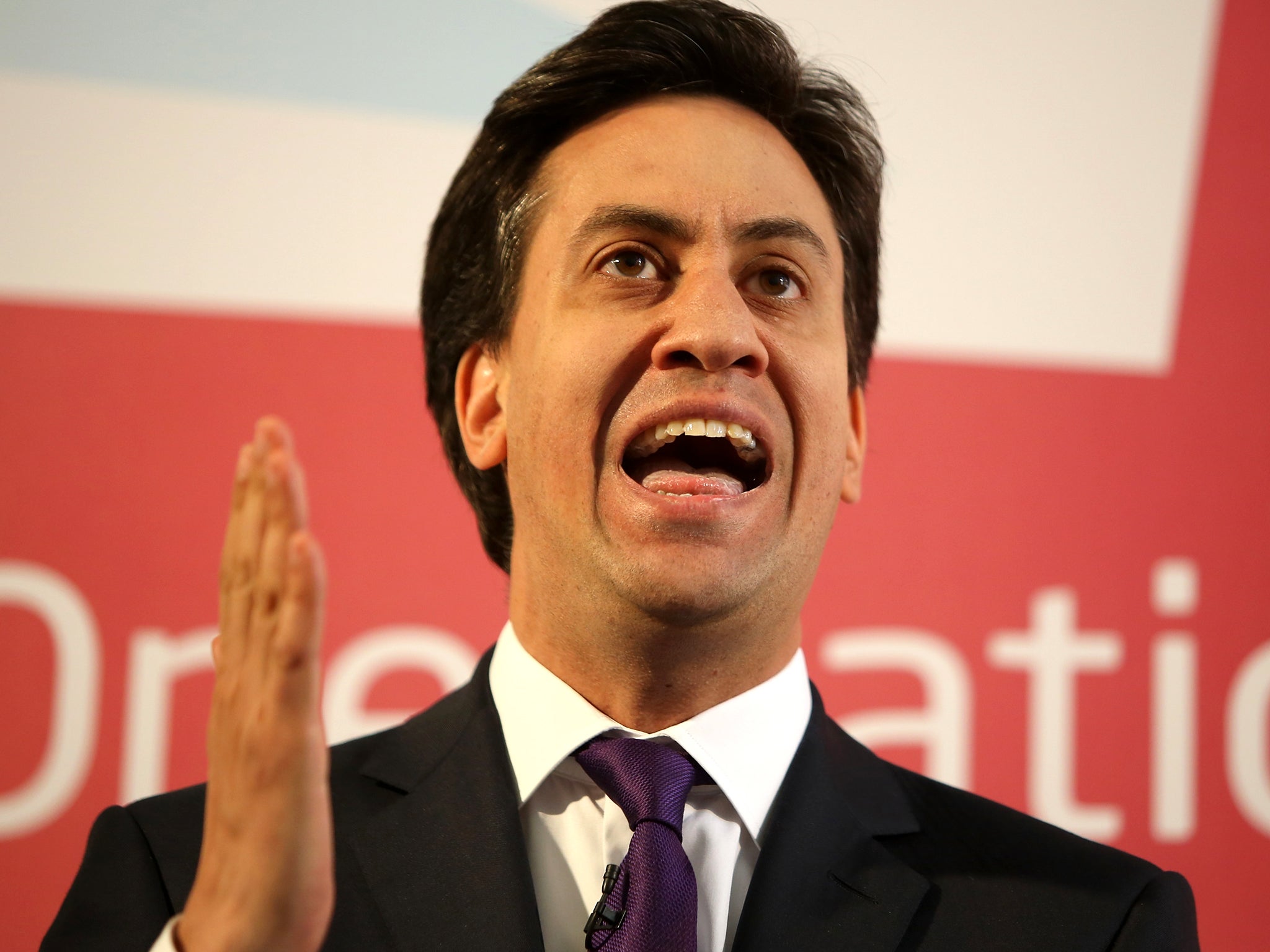Labour poll lead cut to just three points but voters are tiring of Coalition
ComRes poll for The Independent are a setback to the Lib Dems, who hope country's first coalition since the Second World War will make voters more open to the idea

Voters are not warming to coalition government and would prefer either the Conservatives or Labour to win an overall majority in 2015, according to a ComRes survey for The Independent.
It shows that Labour's lead over the Conservatives has halved to three points in the past month, its smallest in a ComRes poll since October last year. Labour is on 37 per cent (up one point since last month); the Tories on 34 per cent (up four points); the UK Independence Party 12 per cent (down two points); the Liberal Democrats 10 per cent (unchanged) and other parties 8 per cent (down one point).
Although these figures would give Ed Miliband a majority of 32 at a general election, the revival in Tory fortunes will worry Labour MPs. The Tories claim Labour is on the defensive over the deficit, welfare and its relationship with the trade unions.
The ComRes findings are a setback to the Lib Dems, who hope the country's first coalition since the Second World War will make voters more open to the idea. Asked whether Britain is better off with a coalition than it would have been if the Conservatives or Labour had won the last election outright, only 29 per cent agreed and 57 per cent disagreed. The current Coalition does not appear to have won over Tory supporters to the merits of sharing power. While six in 10 Lib Dem voters believe the country (60 per cent) is better off with a coalition, almost two-thirds (64 per cent) of Tory voters disagree.
Public support for coalition has not improved since the same question was asked in January 2011, when 32 per cent believed the nation was better off with a coalition and 58 per cent disagreed.
Three in four people (73 per cent) would now prefer one party to win an outright majority in 2015 rather than have another coalition, while 19 per cent disagree. Surprisingly, even a majority of Lib Dem voters (53 per cent) would prefer one party to win an overall majority, while 40 per cent would not. A big majority of Labour voters (82 per cent) and Conservative voters (79 per cent) would rather see one party win outright.
However, Lib Dem strategists will draw comfort from the suggestion that one in five voters would prefer another coalition. They are a key target for Nick Clegg's party and this finding will give it hope that it could do better in 2015 than its current 10 per cent poll rating suggests.
In the event of a hung parliament after the next election, a majority of Lib Dem supporters (53 per cent) would prefer to see their party go into coalition with Labour rather the Conservatives, while 39 per cent disagree.
The public as a whole appear more opposed to a second Lib-Con coalition than a Lib-Lab one. Women (45 per cent) are more likely than men (37 per cent) to prefer the Lib Dems to enter a coalition with Labour rather than the Tories.
Ukip's continuing slip reflects its lower profile since its strong performance in the May local elections. But almost one in five (17 per cent) of people who voted Tory at the last general election say they would now back Nigel Farage's party. Only half of those who voted for the Lib Dems in 2010 would so now, with one in four (26 per cent) saying they would back Labour.
ComRes interviewed 1,001 GB adults by telephone between 25 -27 July 2013. Data were weighted to be demographically representative of all GB adults. Data were also weighted by past vote recall. ComRes is a member of the British Polling Council and abides by its rules.
Join our commenting forum
Join thought-provoking conversations, follow other Independent readers and see their replies
Comments